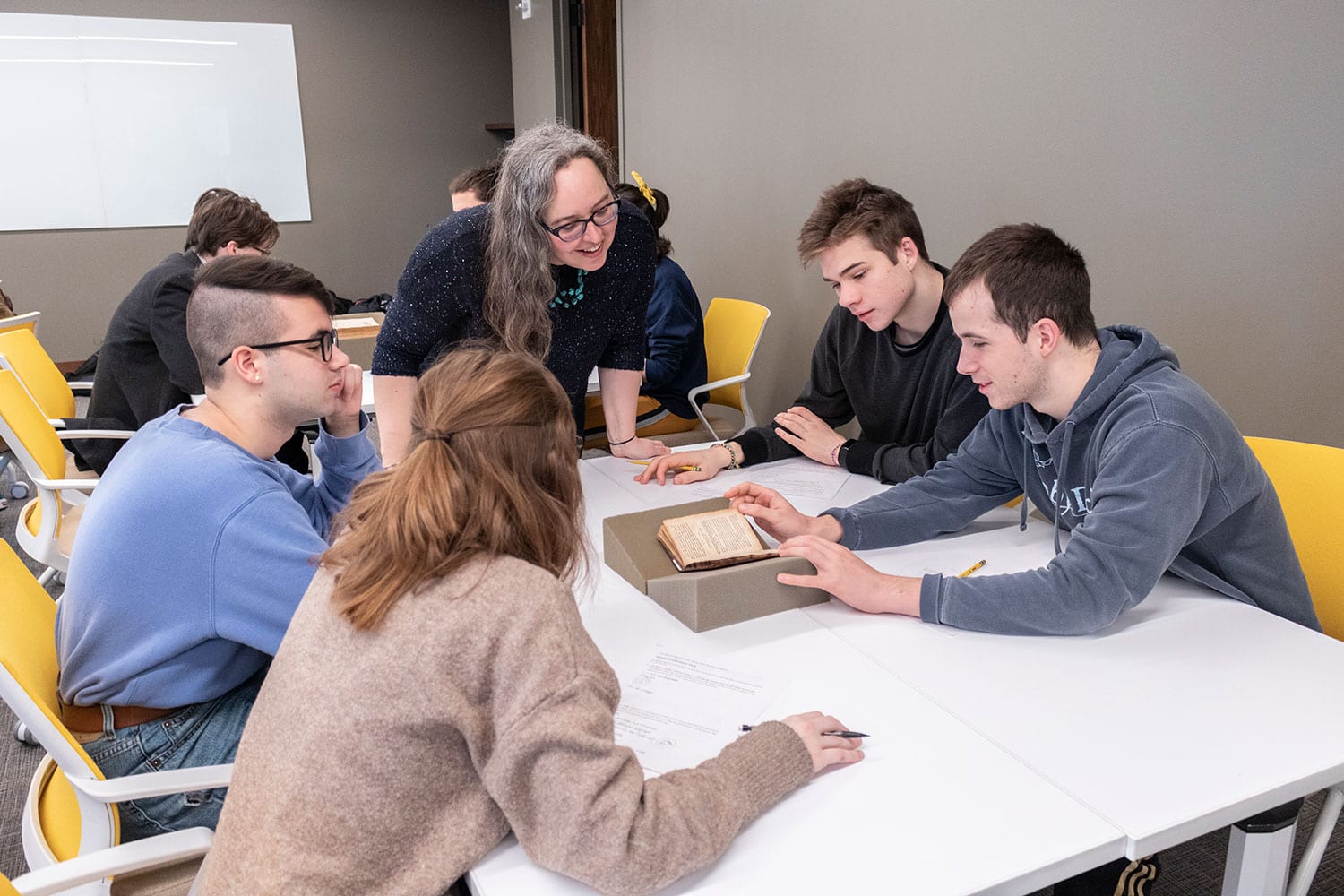Course Title: “Feminist Neuroscience”
Taught By: Visiting Assistant Professor of Psychology Megan Massa
Says Massa:
This course is about how social conceptions of sex, gender, and sexuality have shaped the current iterations and history of neuroendocrinology—the study of hormones and the brain—and sex differences research. We trace the history of this scientific field before placing it
in conversation with feminist and queer theories. Students utilize close reading, writing, and presentation techniques to consider sociological concepts and reframings ofneuroscience. Overall, I hope that students begin to realize how science and society shape one another, and how scientific research is not nearly as free from social influences as we claim it is.
I created this course because I noticed a gap in my education and in our teaching of neuroscience. Oftentimes, neuroscience research falls victim to the allure of objectivity. We see a difference in the brain, say, between females and males of a species, and we automatically assume that it is a) an endogenous, solely biologically written reality that shapes behavior (this is known as “biological determinism”), and b) is a meaningful, immutable, and “good” difference (something akin to “naturalistic fallacy”). These understandings neglect the true complexity of biology and its dependency on the world and environment, while also failing to question why we are even looking for “sex differences” in the first place, especially when sex might not be the most important variable in a given context.
This course is unique in its approach to neuroscience in general. While the first portion of the course uses primary literature to trace the history of the field and demonstrate to students how neuroendocrine models were built, the back half of the semester brings in neuroscience- and science-specific applications of queer and feminist theories to question these models and our approach to neuroendocrine research in general. This all culminates in the ability for students to actually do something about it—they will have the opportunity to rewrite the introduction and conclusion for a recent primary scientific article to reframe real scientific evidence in a way that is not only cognizant of our social biases, but also recognizes the potential impact of the science on society.
Learn more about other courses offered by the Department of Psychology.

